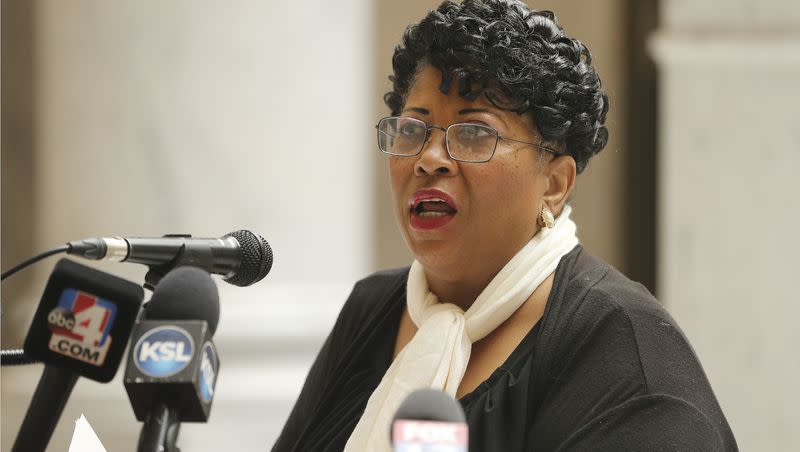Opinion: DEI statements are not a violation of the Constitution

Requiring employees to sign a statement promising to support and obey diversity, equity and inclusion policies does not violate constitutional rights. It ensures the efficient, effective operations of our universities, colleges and school districts; it enforces the law; and it makes us a better society.
According to Forbes magazine, bullying, discrimination and harassment, including sexual harassment, and other forms of workplace misconduct, cost U.S. businesses $20.2 billion in 2021. The impact of those negative behaviors in educational settings harms academic development and performance and increases general anxiety, social anxiety and suicidal ideation in students.
Requiring professors, teachers and employees to support policies prohibiting bullying, discrimination and harassment creates safer educational institutions, and saves money. Requiring professors, teachers and employees to support policies of diversity, equity and inclusion helps the universities, colleges and school districts to better serve the students, and helps the students to better develop and learn. It ensures that our universities, colleges and school districts are more effective at fulfilling their important missions.
DEI policies enforce the law. The Utah Antidiscrimination Act prohibits employment discrimination on the basis of race, color, religion, sex, age (40 or over), national origin, disability, sexual orientation, gender identity, pregnancy, childbirth or pregnancy-related conditions.
The Utah Antidiscrimination Act applies to our universities, colleges and school districts. In addition, federal laws also apply to our educational institutions. Those federal laws include Title VII, which makes it illegal to discriminate against a person on the basis of race, color, religion, sex (including pregnancy, sexual orientation and gender identity) or national origin; Title IX, which prohibits discrimination, including harassment based on sex, in education programs and activities that receive federal financial assistance; and the Americans with Disabilities Act, which protects disabled persons from discrimination in employment and public entities. Requiring professors, teachers and employees to support and obey DEI policies helps enforce the law.
Related
Opinion: Change is uncomfortable, but we need diversity, equity and inclusion policies
Bill banning diversity, equity offices in higher education is converted into study
Such policies, by encouraging diversity, equity and inclusion, help us to promote respect for all people, and to abandon attitudes of racism and prejudice. Our educational establishments should embrace men, women and children from every walk of life, from every culture and economic status. Creating a sustainable, thriving society in Utah requires quality education at all levels and for all persons; it requires gender equality and racial equality; and it requires a sense of social responsibility. Requiring professors, teachers and employees to promise to support diversity, equity and inclusion policies creates that sense of social responsibility toward people, including students and other employees, and toward our educational institutions.
Requiring an employee to promise to support and obey policies calculated to make our educational institutions more effective and efficient, calculated to enforce state and federal laws, and calculated to promote respect for all people, is not a free speech issue, and it is not an issue of academic freedom. It is an issue of proper behavior in the workplace. It is an issue of proper job performance.
The 2023 legislative session’s HB451, which would have prohibited requiring employees to promise to support and obey diversity, equity and inclusion policies, would, if enacted, have resulted in less effective educational institutions and government agencies, increased costs of operations and litigation, and weakened protection granted individuals under our laws from bullying, discrimination and harassment, including sexual harassment. It would have been contrary to the cultural values of Utahns, who seek to create a sustainable, thriving society with a sense of social responsibility toward all people. HB451 was unworthy of our state.
Jeanetta Williams is the president of the NAACP Salt Lake Branch and Tri-State Conference of Idaho, Nevada and Utah, and former member of the NAACP national board of directors. Alain Balmanno is a Member of the NAACP Salt Lake Branch executive committee.

